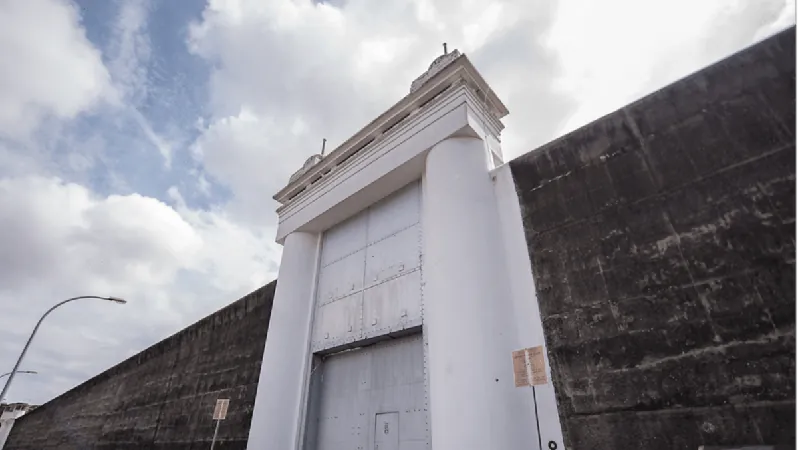
POFMA Order Issued Against Anti-Death Penalty Group for Misleading Claims about Activist Treatment in Singapore
2024-10-09
Author: Li
POFMA Order Issued Against Anti-Death Penalty Group for Misleading Claims about Activist Treatment in Singapore
In a significant development, Singapore's Ministry of Home Affairs (MHA) has issued a correction direction under the Protection from Online Falsehoods and Manipulation Act (POFMA) to the Anti-Death Penalty Asia Network (ADPAN) on October 9. This formal action was prompted by false claims disseminated by ADPAN regarding the government's handling of executions and treatment of opposing voices in the death penalty debate.
The MHA stated that ADPAN issued misleading statements asserting that the Singapore government conducts executions without adhering to the necessary due legal process. Furthermore, ADPAN alleged that the government systematically targets, suppresses, and intimidates individuals and organizations such as the Transformative Justice Collective (TJC) for their positions against capital punishment. These assertions were shared via ADPAN’s social media platforms, including Facebook, Instagram, and LinkedIn, on October 3.
In response, the MHA underscored its commitment to combating falsehoods, emphasizing that the government does not engage in the harassment of individuals or organizations merely for advocating against the death penalty. Instead, the ministry clarified that actions against entities spreading misinformation about the death penalty are taken when it serves the public interest, particularly when such false claims could damage public trust in governmental institutions.
Historically, members of TJC have faced several POFMA correction directions due to their inaccurate statements regarding the legal frameworks governing the death penalty. The MHA elaborated that these measures are warranted, as the misleading information not only casts doubt on the credibility of the government but also on the integrity of the criminal justice system.
A Closer Look at Due Legal Process
The ministry detailed the stringent legal processes that precede any execution. An execution is only scheduled once an individual has exhausted all legal avenues for appeal and has undergone a thorough clemency review. This was particularly evident in the case referenced by ADPAN, involving Mohammad Azwan Bohari. Convicted in 2009 for drug trafficking and other related offenses, Azwan was released in 2014 but was arrested again the following year for new drug trafficking charges.
At the High Court trial, the prosecution successfully presented evidence, including Azwan's own admissions during police investigations, substantiating the trafficking allegations. While Azwan attempted to argue that he was a drug addict and not engaged in trafficking, the court found his defense insufficient and ultimately concluded that he had knowingly possessed drugs for the purpose of sale.
In 2019, Azwan was sentenced to death, a decision upheld by the Court of Appeal in 2019, which rejected his appeal and subsequent clemency requests in 2020 and 2022. The MHA reiterated that Azwan was executed on October 4 only after all possible legal processes were thoroughly exhausted, including a civil application that had no relevance to his conviction.
This case highlights a broader narrative on the Singapore government’s strict approach to drug offenses and its commitment to enforcing the law while attempting to counter misinformation regarding its judicial processes. The MHA's actions signify an unwavering stance against falsehoods that could erode public trust—an essential component in maintaining a functioning justice system.
Watch as the debate around capital punishment in Singapore intensifies, and find out what this means for activists and the future of justice in the region!

 Brasil (PT)
Brasil (PT)
 Canada (EN)
Canada (EN)
 Chile (ES)
Chile (ES)
 España (ES)
España (ES)
 France (FR)
France (FR)
 Hong Kong (EN)
Hong Kong (EN)
 Italia (IT)
Italia (IT)
 日本 (JA)
日本 (JA)
 Magyarország (HU)
Magyarország (HU)
 Norge (NO)
Norge (NO)
 Polska (PL)
Polska (PL)
 Schweiz (DE)
Schweiz (DE)
 Singapore (EN)
Singapore (EN)
 Sverige (SV)
Sverige (SV)
 Suomi (FI)
Suomi (FI)
 Türkiye (TR)
Türkiye (TR)